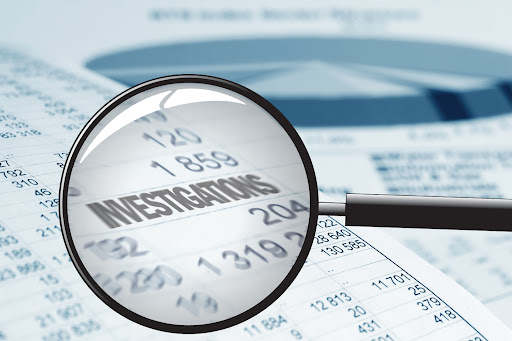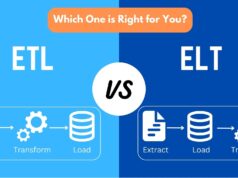Opening Word
The world of business is a very complicated field and one in which there are numerous job opportunities and career paths to choose from. However, no matter the branch of industry you are involved with, there are certain positions that are universal and without which a company would not be able to operate. Those critically important positions are not always the top-paying jobs either like being a board member, a CEO, or a manager of some sorts. They are actually considered regular jobs that can still be well-paid if you are knowledgeable and skilled enough.
Among them, it is the accounting position that every single business, firm, or company, no matter how big or small, has to have. Not only does it have to exist, but it is arguably the most important and most responsible collection of tasks in the financial part of things. Accounting covers everything from measurements, communication, processing, and calculations, to bookkeeping, managing salaries and bonuses, and paying attention to costs. Therefore, people should know more about it so that they can better understand the importance of their colleagues who are doing it.
Better yet, we should all talk about accounting more and start to realize just how important it is and how skilled and diligent those workers need to be. For example, not a lot of people realize that there is another type of accounting called forensic accounting. You probably have no idea what the differences between the two are. To help you understand it, we decided to devote this article to exactly that. If you wish to learn more about this, make sure to check out CFOshare.
What is Accounting?

Although we talked about it already to a certain degree, in order to understand forensic accounting, you must first know more about regular, financial accounting. Accounting in a financial sense is the preparation of financial statements dictated by the GAAP, Generally Accepted Accounting Principles. There is a certain set of regulations, laws, rules, and guidelines that the Financial Accounting Standard Board, or FASB, dictates. Companies have to follow the standards that are set and overlooked by the PCAOB, Public Company Accounting Oversight Board, which is why there is a need for at least one accountant per business.
So what do they do exactly? Well, a financial accountant’s main job is to review and keep track of all the historical data regarding any circulation of money in it and form opinions under the guidelines mentioned above. If the company that hired them is off in any way, it is their job to propose and implement measures so that the financial statements make sense and be according to the law. They have to follow a strict and well-defined set of procedures and rules, which makes them respected among their colleagues and employers. They are worth listening to for advice and they should be consulted if there is ever an issue regarding the finances and the economic situation within the firm.
All in all, the financial statements have to be audited by financial accountants every year in the form of an annual audit. All of the employees are aware of it and it is a big moment for the whole team each year. The numbers have to be in order and make sense, else there could be problems with everything from the salaries and end of the year bonuses to problems with taxes and punishments by the IRS. The financial statement itself is used for a lot of things, mostly by corporate audiences and stakeholders. More importantly, they serve as proof of legal actions and procedures within the company.
What is Forensic Accounting?

While regular financial accountants perform their everyday tasks by taking care of the numbers making sure everything is in order, forensic accountants perform financial investigations. Right from the start you can see how different the two positions are and how unique their roles are. Things are more subjective in forensic accounting and not that black or white like in finances. They still have to follow the basic GAAP rules, but not all of them, nor those by FASB. They actually have no guidelines set in stone.
They start the investigation by examining and using the historical data of the financial statements, but they will then have other procedures in place based on what they think is needed. There are taught and trained to seek the truth beyond the mere numbers and deal with the actual causes for the improper financial state of a company. They are much more interested in the reality of the situations and their main goal is to identify the causes of fraud so that those guilty can be found.
Based mainly on observation of affairs once certain events have transpired, forensic accounting also includes interviewing most of the employees no matter how high or low their position is within the team. Senior management, the clerical staff, and the maintenance crew are all equal in the eyes of a forensic accountant. Each case is different, and each is observed and approached without any bias. The red flags are first to be identified and based on what was learned from all the reviews, interviews, and observations, further action is taken.
Implementing Virtual Bookkeeping: Transforming Accounting and Forensic Accounting
Virtual bookkeeping has revolutionized the field of accounting and forensic accounting, offering a range of benefits and efficiencies. By embracing virtual solutions, businesses and professionals can streamline their financial processes, enhance accuracy, and gain valuable insights. In this article, we will explore how to effectively implement virtual bookkeeping in accounting and forensic accounting, optimizing efficiency and accuracy.
When it comes to implementing virtual bookkeeping in accounting, the first step is to leverage cloud-based accounting software. By migrating financial data to secure online platforms, businesses can access real-time information from anywhere, facilitating collaboration and remote work. Implementing automated data entry and synchronization further enhances accuracy and eliminates manual errors. Additionally, leveraging advanced reporting features and integrations with other financial tools empowers businesses to generate insightful financial analysis and make informed decisions.
In the realm of forensic accounting, virtual bookkeeping provides even greater advantages. With the ability to access and analyze financial data remotely, forensic accountants can uncover financial irregularities and detect fraud more efficiently. Implementing virtual bookkeeping in forensic accounting involves utilizing specialized software and tools for data extraction, analysis, and visualization. These tools enable forensic accountants to identify patterns, anomalies, and discrepancies that may indicate fraudulent activities. By leveraging virtual bookkeeping technologies, forensic accountants can craft compelling reports and presentations, presenting complex financial information in a clear and concise manner.
Implementing virtual bookkeeping in accounting and forensic accounting offers a transformative approach to financial management and analysis. By embracing cloud-based solutions, automation, and specialized software, businesses and forensic accountants can optimize efficiency, accuracy, and the overall effectiveness of their financial processes. By leveraging these virtual tools and techniques, accounting and forensic accounting professionals can craft a future where financial management is seamless and insights are readily available.
Main Differences and Conclusion

Forensic accountants usually work closely with a legal team and they know that they will have to testify in front of a jury as an expert in this complicated field. Therefore, they are completely different than regular accountants but they know their jobs inside and out as well. The key thing for every forensic accountant is to be neutral during the entirety of the case. Contrary to this, financial accountants do whatever they can to help their company.
Obviously, forensic accounting is not something needed on a regular and routine basis. It is not an everyday job in the sense of coming to an office and crunching the numbers. One is called only when one is needed. The sooner they are brought in to study the case in question, the faster and cheaper everything will turn out to be, while the recovery and the getting back on track will be better, fuller, and greater. It can be said that forensic accounting is a much more daring, skilled, and responsible job than regular accounting.















